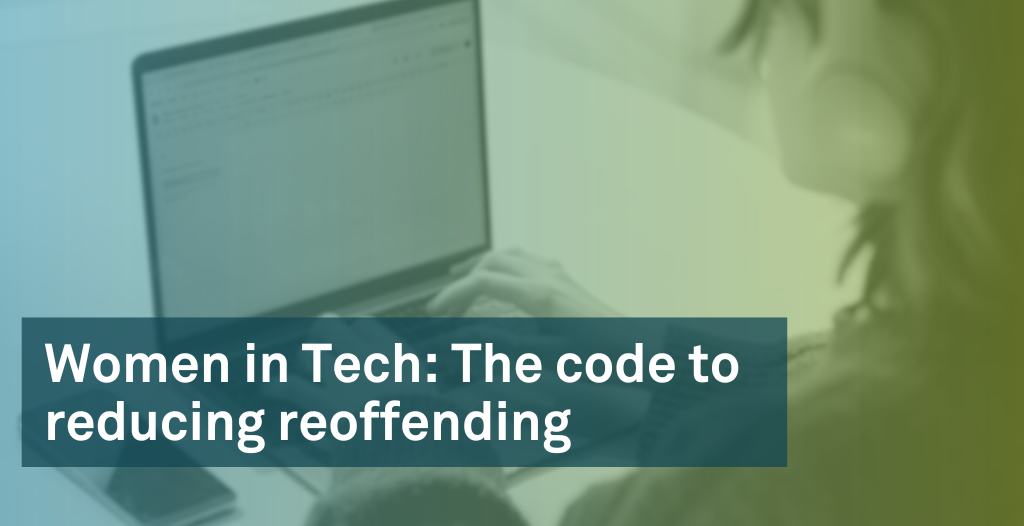Despite women making up 49% of the UK’s workforce, they represent only 29% of the tech industry, underscoring a significant gender disparity. For women released from prison, the barriers to sustainable careers in technology sectors are even greater. In 2021 to 2022, only 8% of female prison leavers were in work six months after release, compared with 18% of men.
At Catch22, our Reducing Reoffending campaign is built on three key pillars that also underpin programmes like Code4000.
- We are rooted locally and connected nationally. By linking participants into communities of peer support, and employer networks, we help women leaving prison build meaningful connections that last beyond the programme.
- We know that real voices lead to real results. Code4000 is shaped by the lived experience of participants and the expertise of frontline staff, ensuring that the support offered is relevant, empowering, and effective.
- As a not-for-profit we are powered by purpose. Every pound is reinvested into people and services, helping us deliver social value, build trust, and create better long-term outcomes for women looking to restart their lives through meaningful careers in tech.
As we enter National Coding Week, we’re taking a closer look at how employability programmes, such as Code4000, reduce reoffending whilst plugging gender skills gaps in the tech sector.
What is Code4000?
The Code4000 programme for women and non-binary people who have been released from custody or who are on Release on Temporary Licence (ROTL). Delivered online across England and Wales, the 12-week programme combines coding and digital skills with one-to-one tutoring. During this time, women gain a strong foundation in web development, covering skills such as:
- Foundations of Computer Science
- Front End Web Development
- Responsive Web Development
- JavaScript.
But it is not only about coding. It is also about creating a safe space where women can grow in confidence, manage their mental health, and see new possibilities for their future. The women we work with at Catch22 often tell us that poor mental health, stigma, and a lack of personalised support make it hard to see a way into meaningful employment.
Therefore, career coaches provide tailored support, empowering women to take their next steps. This may involve helping them to identify suitable roles, move into employment, consider further study, or simply build the confidence to keep learning. Some have even chosen to broaden their knowledge after completing the programme, for example by taking a Python course in Web Development, delivered through our collaboration with PA Consulting.
Supported by PA volunteers from across their Justice practice and Women in Tech network, the women are also matched with mentors working in a range of technical roles. These mentors share practical guidance on how to navigate the tech industry, build soft skills, and prepare for employment. Their support is vital in helping the programme run and in giving participants access to industry expertise.
To date, we have supported 47 women on Code4000. Assessments also show strong improvements in skills and confidence while on the programme. After only 8 weeks of support,
- 83% of Code4000 participants felt motivated to enter the job market
- 83% felt confident in entering the labour market
- 22% fewer participants were facing challenges to their mental health and wellbeing.



